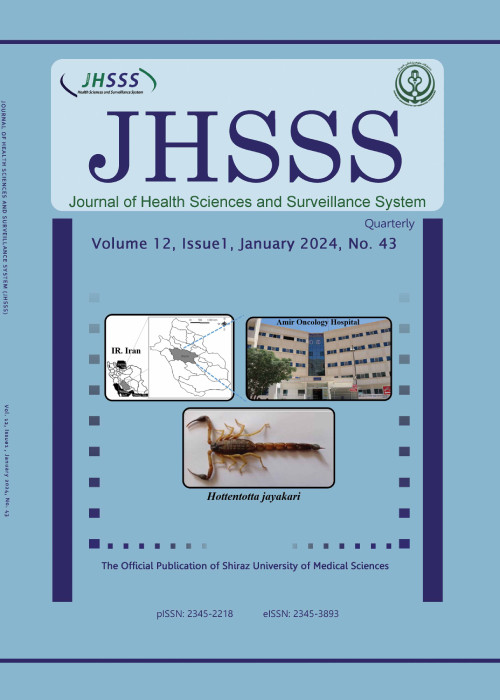Cyberchondria and COVID-19 Pandemic
The new coronavirus (SARS-CoV-2), which belongs to a group of families of viruses, was found in Wuhan, China, on December 29, 2019 and became a highly contagious disease. This unknown disease was introduced with symptoms of fever, cough, myalgia, fatigue, diarrhea, vomiting, hemoptysis, shortness of breath, severe bilateral lung infiltrates, arrhythmia, acute heart injury, impaired renal function, liver dysfunction, and some death cases (1). There is no doubt that COVID-19 has been an unprecedented challenge for humanity and since the World Health Organization warned of a crisis(2), people were faced with a huge amount of right and wrong information published in the cyberspace; despite the few symptoms and possibility of low infection, many people searched the cyberspace to get information for self-care(3). Experience with the results of previous studies also shows that despite the benefits of using the Internet and smartphones by users, checking the health of users on the Internet pathologically when a disease spreads (Cyberchondria) can be worrying, and in such situations, individuals may try to attribute an illness to themselves by examining the Internet sites and social networks(4). However, research conducted after the COVID-19 pandemic on the number of "CoV" searches on Google shows that the volume of the searched content on "CoV" about 2019-nCoV is rapidly increasing, and in spite of the fact that much of the information in the social media is invalid, it can raise public concern about the disease. Therefore, searching for information about COVID-19 online and confrontation with such huge information may increase anxiety and distress and cause cyberchondria(5). Therefore, healthcare authorities in different countries, including Iran, must be prepared to face with the health challenges of this emerging disease, address the general anxiety caused by its outbreak, and adopt appropriate programs to manage public opinion during the prevalence of this disease; also, we should expand people's access to the right information to prevent the spread of Cyberchondria, which can be caused by incorrect information received about COVID-19. Finally, it can be said that due to the growing concerns about COVID-19, people may eventually ignore vital information published about this disease by the media because of the fear of knowing.
- حق عضویت دریافتی صرف حمایت از نشریات عضو و نگهداری، تکمیل و توسعه مگیران میشود.
- پرداخت حق اشتراک و دانلود مقالات اجازه بازنشر آن در سایر رسانههای چاپی و دیجیتال را به کاربر نمیدهد.


